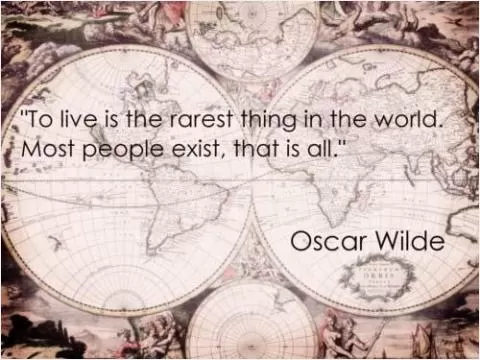One can survive anything these days, except death, and live down anything except a good reputation

One can survive anything these days, except death, and live down anything except a good reputation
Oscar Wilde, the renowned Irish playwright, poet, and author, was known for his wit, humor, and sharp observations on society. One of his most famous quotes, "One can survive anything these days, except death, and live down anything except a good reputation," perfectly encapsulates his views on the importance of reputation and the consequences of tarnishing it.In Wilde's time, reputation was everything. Society placed a high value on appearances, social standing, and public perception. A good reputation could open doors, secure opportunities, and earn respect, while a bad reputation could ruin careers, relationships, and lives. Wilde himself experienced the power of reputation firsthand when his own reputation was destroyed by scandal and controversy.
Wilde's quote suggests that in today's world, with the rise of social media and instant communication, it is easier than ever to survive adversity and bounce back from setbacks. People can reinvent themselves, rebuild their lives, and overcome obstacles with the support of technology, resources, and networks. However, Wilde also warns that no matter how resilient one may be, a good reputation is not easily regained once lost.
Wilde's own life serves as a cautionary tale of the consequences of damaging one's reputation. His involvement in a scandalous affair with Lord Alfred Douglas led to his arrest, trial, and imprisonment for "gross indecency." Despite his talent, intelligence, and charm, Wilde's reputation was irreparably tarnished, and he was ostracized by society.
Even after his release from prison, Wilde struggled to regain his former status and success. His health deteriorated, his finances dwindled, and his reputation preceded him wherever he went. Wilde's quote reflects his own experiences and serves as a reminder of the fragility of reputation and the lasting impact of one's actions.












 Friendship Quotes
Friendship Quotes Love Quotes
Love Quotes Life Quotes
Life Quotes Funny Quotes
Funny Quotes Motivational Quotes
Motivational Quotes Inspirational Quotes
Inspirational Quotes